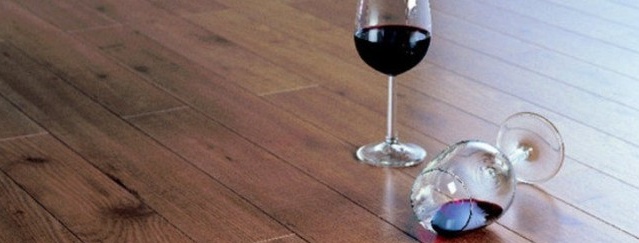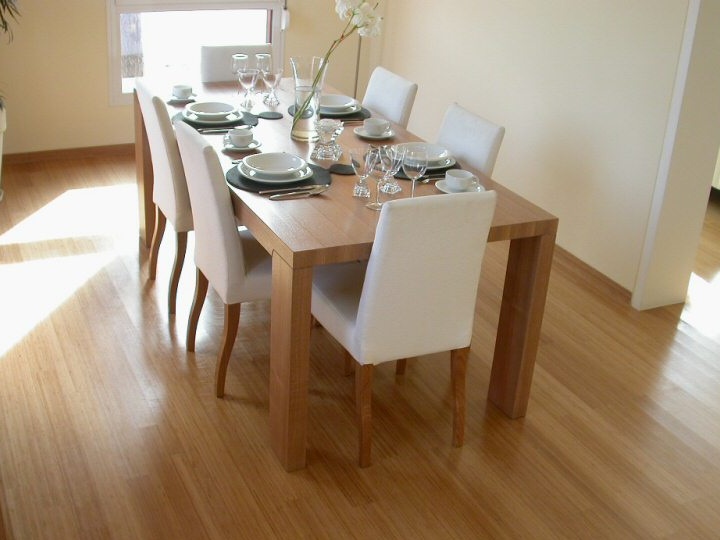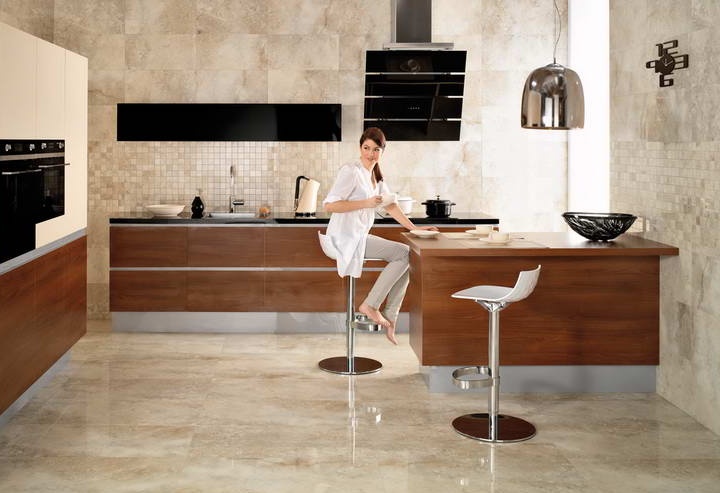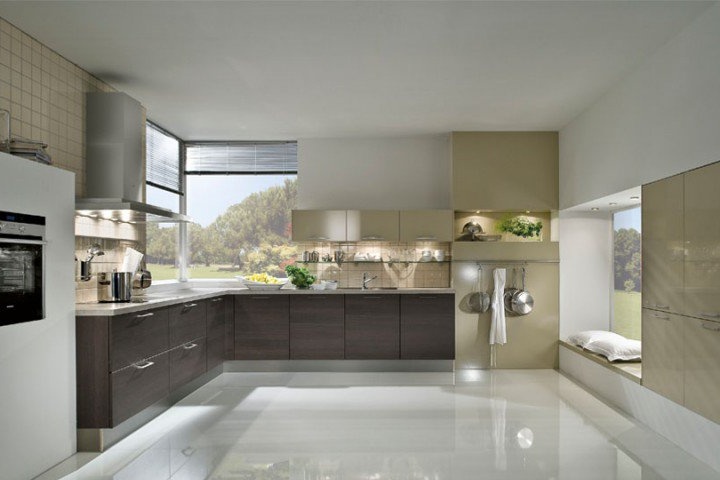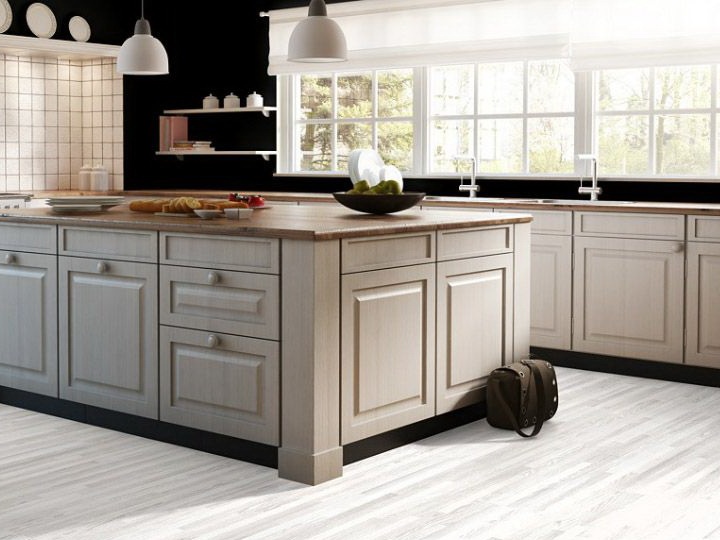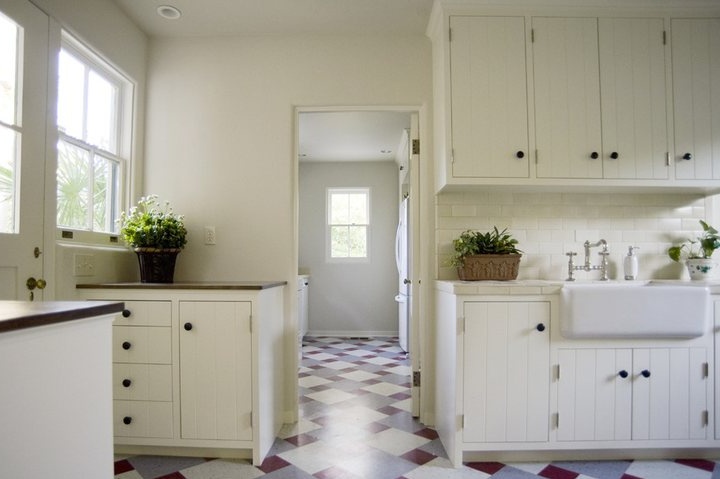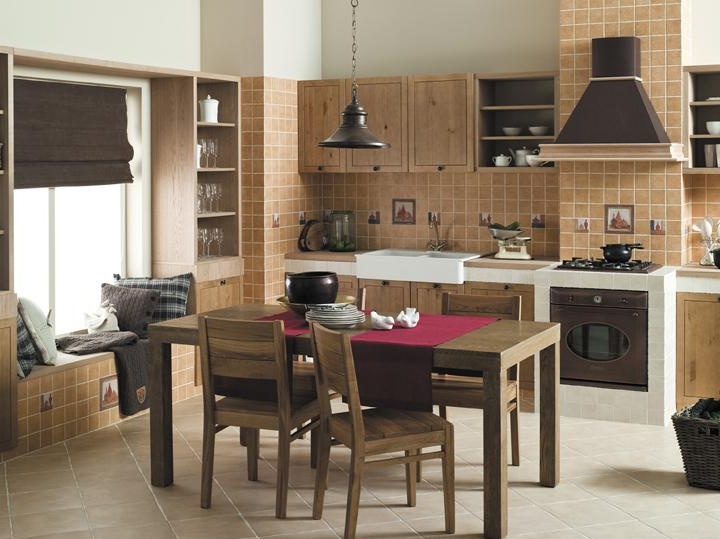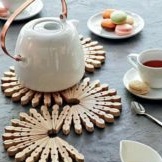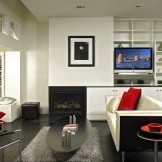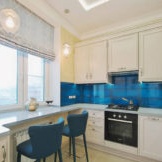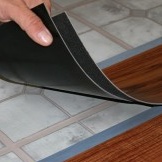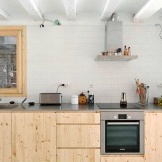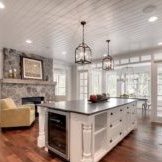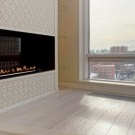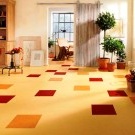Kitchen floor: which is better to choose?
Kitchen - the most "inhabited" room in the house and floor covering need to be selected carefully. The floor must withstand increased humidity, splashes of grease, hot water, detergents, blows falling dishes. And the floor is washed in the kitchen much more often than in other rooms, so the floor should be practical, durable and aesthetic.
Hit parade of flooring for the kitchen
Today, the building materials market offers a wide range of floor coverings: from the most unusual, design options to simple, low-cost solutions. Each of them has unique properties, but, unfortunately, not all of them will be practical in the kitchen. Consider the hit parade of flooring for the kitchen, their features, advantages, disadvantages, practicality and other nuances.
7th place is parquet
Certainly parquet It is considered the most beautiful and environmentally friendly material among its "classmates." Due to its unique and inimitable texture, it is able to transform the room beyond recognition, to give it sophistication and status. Any guest in the house will be able to fully appreciate such an interior. But for the kitchen, parquet is perhaps the worst option. As you know, a tree does not like moisture. Spilled water, constant wet cleaning, soot, detergents and other troubles will not affect the appearance of the material in the best way. In addition, parquet is an expensive floor covering, requires special care and certain installation skills.
- Pros: beautiful appearance, environmental friendliness.
- Cons: afraid of humidity, requires special care, high cost, installation complexity.
6th place: natural stone
Natural stone is wear-resistant, durable, does not lose aesthetic properties during operation. Marble, granite or sandstone is suitable for the kitchen floor. Granite is very hard, and the sandstone over time is covered with a natural gray patina. Marble in the kitchen looks just fine, but requires special care. Such a coating requires anti-oil impregnation. Otherwise, oil stains will be absorbed into the structure of the material and become visually highlighted. Moreover, scratches and potholes remain on the marble surface.
The floor made of natural stone is resistant to abrasion, high temperature, fits seamlessly, forming a uniform surface, allows you to lay out various patterns and compositions, durable. But there are also disadvantages - it has low shock-absorbing qualities, it is demanding in cleaning, it is cold (floor heating is required), it is expensive and it will be necessary to involve a specialist for laying.
- Pros: attractive appearance, durability.
- Cons: requires special care because of the porous structure, the high cost and complexity of installation.
5th place: bulk floor
This is a type of self-leveling screed with a minimum thickness of 3.5 mm. Now Self-leveling floors became popular. They are made from polymers and have a perfectly smooth surface.
Bulk flooring is an alternative to tile, laminate or linoleum. The materials are relatively expensive, and the installation is time-consuming. But the consumption of materials is small. The price of these floors depends on the material used for pouring. The bulk floor is elastic, has no seams, is tight, resistant to moisture and chemicals, harmless, easy to clean. But there is no material without flaws: it has a uniform design, before “pouring” it requires careful preparation of the base, it is difficult to remove it. Some materials burn out when exposed to sunlight.
4th place: cork floor
Bung - It is a natural and environmentally friendly coating. Moreover, the material is very soft.For example, if you accidentally miss the dishes on the floor, then there is a high probability that it will not suffer. Walking on such a coating is a pleasure. Read more about cork flooring in the kitchen here.
- Pros: easy to clean, soft, warm, environmentally friendly, does not decay and is not afraid of water.
- Cons: high cost, does not like scratches from furniture legs, pets, etc.
3rd place: laminated panels
Laminated panel good flooring for the kitchen. The panel can be similar to any material - oak, beech, pine, walnut, pear, olive tree, stone, ceramics ... The texture of this tile can be smooth or similar to parquet.
For the kitchen, choose MDF or HDF panels with higher moisture resistance. This is a relatively inexpensive material, it is possible to lay it yourself, resistant to chemical and mechanical influences, well absorbs shock. The disadvantages include naturalness, the possibility of smell, poor absorption of sounds, the difficulty of recovery.
2nd place: linoleum
This is a familiar and time-tested material. It can take the form of wood, parquet, stone, but it costs much less. Linoleum It is not deformed, resistant to chemicals, easy to clean, does not attract dust, is much warmer than ceramic tile, easy tostyling. But in practicality, durability and environmental friendliness, the material is inferior to ceramic tile. In addition, the initial appearance will not change for the better over time.
- Pluses: cheapness, simplicity in laying and leaving, good practicality.
- Cons: short life, not natural.
The market offers both natural linoleum and PVC. Natural is preferable, of course - it is environmentally friendly. But PVC is cheaper. If you choose the latter, then with a natural substrate.
1st place: ceramic tile
Ceramic tile the best flooring for the kitchen. It is practical, durable, does not deform under mechanical stress, is easy to clean, resistant to chemicals and does not fade. At the same time, it has an affordable price and has a wide range of species, shapes and colors. Steam, various fats and alkalis are not afraid of her. The tile can be washed at least every day and it will not lose its original appearance. The only negative is that the material is cold, so it is better to conduct a warm floor in advance.

